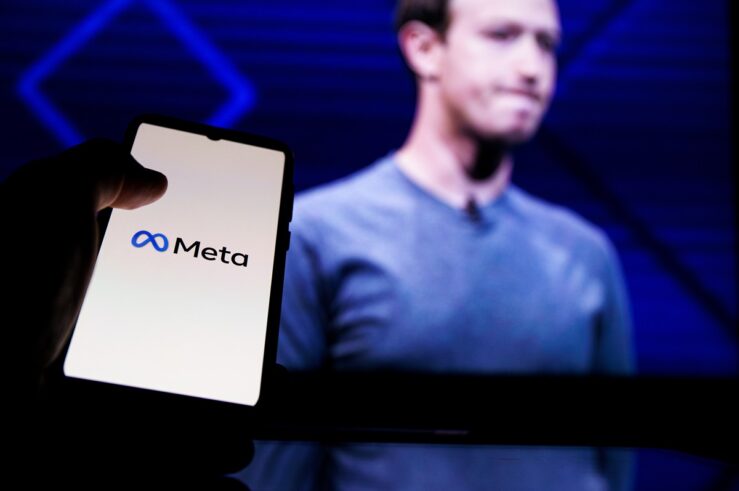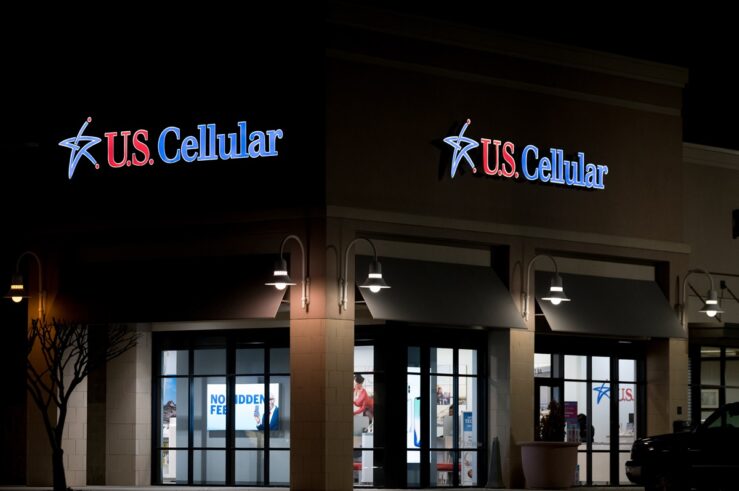Last week a group of startup investors wrote a letter to protest what they assume FCC Chairman Tom Wheeler’s proposed, revised Open Internet NPRM will say.
Bear in mind that an NPRM is a proposal, not a final rule, and its issuance starts a public comment period. Bear in mind, as well, that the proposal isn’t public yet, presumably none of the signatories to this letter has seen it, and the devil is usually in the details. That said, the letter has been getting a lot of press.
I found the letter seriously wanting, and seriously disappointing. But it’s a perfect example of what’s so wrong with this interminable debate on net neutrality.
Below I reproduce the letter in full, in quotes, with my comments interspersed. The key take-away: Neutrality (or non-discrimination) isn’t what’s at stake here. What’s at stake is zero-cost access by content providers to broadband networks. One can surely understand why content providers and those who fund them want their costs of doing business to be lower. But the rhetoric of net neutrality is mismatched with this goal. It’s no wonder they don’t just come out and say it – it’s quite a remarkable claim.
Open Internet Investors Letter
The Honorable Tom Wheeler, Chairman
Federal Communications Commission
445 12th Street, SW
Washington D.C. 20554May 8, 2014
Dear Chairman Wheeler:
We write to express our support for a free and open Internet.
We invest in entrepreneurs, investing our own funds and those of our investors (who are individuals, pension funds, endowments, and financial institutions). We often invest at the earliest stages, when companies include just a handful of founders with largely unproven ideas. But, without lawyers, large teams or major revenues, these small startups have had the opportunity to experiment, adapt, and grow, thanks to equal access to the global market.
“Equal” access has nothing to do with it. No startup is inherently benefitted by being “equal” to others. Maybe this is just careless drafting. But frankly, as I’ll discuss, there are good reasons to think (contra the pro-net neutrality narrative) that startups will be helped by inequality (just like contra the (totally wrong) accepted narrative, payola helps new artists). It says more than they would like about what these investors really want that they advocate “equality” despite the harm it may impose on startups (more on this later).
Presumably what “equal” really means here is “zero cost”: “As long as my startup pays nothing for access to ISPs’ subscribers, it’s fine that we’re all on equal footing.” Wheeler has stated his intent that his proposal would require any prioritization to be available to any who want it, on equivalent, commercially reasonable terms. That’s “equal,” too, so what’s to complain about? But it isn’t really inequality that’s gotten everyone so upset.
Of course, access is never really “zero cost;” start-ups wouldn’t need investors if their costs were zero. In that sense, why is equality of ISP access any more important than other forms of potential equality? Why not mandate price controls on rent? Why not mandate equal rent? A cost is a cost. What’s really going on here is that, like Netflix, these investors want to lower their costs and raise their returns as much as possible, and they want the government to do it for them.
As a result, some of the startups we have invested in have managed to become among the most admired, successful, and influential companies in the world.
No startup became successful as a result of “equality” or even zero-cost access to broadband. No doubt some of their business models were predicated on that assumption. But it didn’t cause their success.
We have made our investment decisions based on the certainty of a level playing field and of assurances against discrimination and access fees from Internet access providers.
And they would make investment decisions based on the possibility of an un-level playing field if that were the status quo. More importantly, the businesses vying for investment dollars might be different ones if they built their business models in a different legal/economic environment. So what? This says nothing about the amount of investment, the types of businesses, the quality of businesses that would arise under a different set of rules. It says only that past specific investments might not have been made.
Unless the contention is that businesses would be systematically worse under a different rule, this is irrelevant. I have seen that claim made, and it’s implicit here, of course, but I’ve seen no evidence to actually support it. Businesses thrive in unequal, cost-ladened environments all the time. It costs about $4 million/30 seconds to advertise during the Super Bowl. Budweiser and PepsiCo paid multiple millions this year to do so; many of their competitors didn’t. With inequality like that, it’s a wonder Sierra Nevada and Dr. Pepper haven’t gone bankrupt.
Indeed, our investment decisions in Internet companies are dependent upon the certainty of an equal-opportunity marketplace.
Again, no they’re not. Equal opportunity is a euphemism for zero cost, or else this is simply absurd on its face. Are these investors so lacking in creativity and ability that they can invest only when there is certainty of equal opportunity? Don’t investors thrive – aren’t they most needed – in environments where arbitrage is possible, where a creative entrepreneur can come up with a risky, novel way to take advantage of differential conditions better than his competitors? Moreover, the implicit equating of “equal-opportunity marketplace” with net neutrality rules is far-fetched. Is that really all that matters?
This is a good time to make a point that is so often missed: The loudest voices for net neutrality are the biggest companies – Google, Netflix, Amazon, etc. That fact should give these investors and everyone else serious pause. Their claim rests on the idea that “equality” is needed, so big companies can’t use an Internet “fast lane” to squash them. Google is decidedly a big company. So why do the big boys want this so much?
The battle is often pitched as one of ISPs vs. (small) content providers. But content providers have far less to worry about and face far less competition from broadband providers than from big, incumbent competitors. It is often claimed that “Netflix was able to pay Comcast’s toll, but a small startup won’t have that luxury.” But Comcast won’t even notice or care about a small startup; its traffic demands will be inconsequential. Netflix can afford to pay for Internet access for precisely the same reason it came to Comcast’s attention: It’s hugely successful, and thus creates a huge amount of traffic.
Based on news reports and your own statements, we are worried that your proposed rules will not provide the necessary certainty that we need to make investment decisions and that these rules will stifle innovation in the Internet sector.
Now, there’s little doubt that legal certainty aids investment decisions. But “certainty” is not in danger here. The rules have to change because the court said so – with pretty clear certainty. And a new rule is not inherently any more or less likely to offer certainty than the previous Open Internet Order, which itself was subject to intense litigation (obviously) and would have been subject to interpretation and inconsistent enforcement (and would have allowed all kinds of paid prioritization, too!). Certainty would be good, but Wheeler’s proposed rule won’t likely do anything about the amount of certainty one way or the other.
If established companies are able to pay for better access speeds or lower latency, the Internet will no longer be a level playing field. Start-ups with applications that are advantaged by speed (such as games, video, or payment systems) will be unlikely to overcome that deficit no matter how innovative their service.
Again, it’s notable that some of the strongest advocates for net neutrality are established companies. Another letter sent out last week included signatures from a bunch of startups, but also Google, Microsoft, Facebook and Yahoo!, among others.
In truth it’s hard to see why startup investors would think this helps them. Non-neutrality offers the prospect that a startup might be able to buy priority access to overcome the inherent disadvantage of newness, and to better compete with an established company. Neutrality means that that competitive advantage is impossible, and the baseline relative advantages and disadvantages remain – which helps incumbents, not startups. With a neutral Internet – well, the advantages of the incumbent competitor can’t be dissipated by a startup buying a favorable leg-up in speed and the Netflix’s of the world will be more likely to continue to dominate.
Of course the claim is that incumbents will use their huge resources to gain even more advantage with prioritized access. Implicit in this must be the assumption that the advantage that could be gained by a startup buying priority offers less return for the startup than the cost imposed on it by the inherent disadvantages of reputation, brand awareness, customer base, etc. But that’s not plausible for all or even most startups. And investors exist precisely because they are able to provide funds for which there is a likelihood of a good return – so if paying for priority would help overcome inherent disadvantages, there would be money for it.
Also implicit is the claim that the benefits to incumbents (over and above their natural advantages) from paying for priority, in terms of hamstringing new entrants, will outweigh the cost. This is unlikely generally to be true, as well. They already have advantages. Sure, sometimes they might want to pay for more, but in precisely the cases where it would be worth it to do so, the new entrant would also be most benefited by doing so itself – ensuring, again, that investment funds will be available.
Of course if both incumbents and startups decide paying for priority is better, we’re back to a world of “equality,” so what’s to complain about, based on this letter? This puts into stark relief that what these investors really want is government-mandated, subsidized broadband access, not “equality.”
Now, it’s conceivable that that is the optimal state of affairs, but if it is, it isn’t for the reasons given here, nor has anyone actually demonstrated that it is the case.
Entrepreneurs will need to raise money to buy fast lane services before they have proven that consumers want their product. Investors will extract more equity from entrepreneurs to compensate for the risk.
Internet applications will not be able to afford to create a relationship with millions of consumers by making their service freely available and then build a business over time as they better understand the value consumers find in their service (which is what Facebook, Twitter, Tumblr, Pinterest, Reddit, Dropbox and virtually other consumer Internet service did to achieve scale).
In other words: “Subsidize us. We’re worth it.” Maybe. But this is probably more revealing than intended. The Internet cost something to someone to build. (Actually, it cost more than a trillion dollars to broadband providers). This just says “we shouldn’t have to pay them for it now.” Fine, but who, then, and how do you know that forcing someone else to subsidize these startup companies will actually lead to better results? Mightn’t we get less broadband investment such that there is little Internet available for these companies to take advantage of in the first place? If broadband consumers instead of content consumers foot the bill, is that clearly preferable, either from a social welfare perspective, or even the self interest of these investors who, after all, do ultimately rely on consumer spending to earn their return?
Moreover, why is this “build for free, then learn how to monetize over time” business model necessarily better than any other? These startup investors know better than anyone that enshrining existing business models just because they exist is the antithesis of innovation and progress. But that’s exactly what they’re saying – “the successful companies of the past did it this way, so we should get a government guarantee to preserve our ability to do it, too!”
This is the most depressing implication of this letter. These investors and others like them have been responsible for financing enormously valuable innovations. If even they can’t see the hypocrisy of these claims for net neutrality – and worse, choose to propagate it further – then we really have come to a sad place. When innovators argue passionately for stagnation, we’re in trouble.
Instead, creators will have to ask permission of an investor or corporate hierarchy before they can launch. Ideas will be vetted by committees and quirky passion projects will not get a chance. An individual in dorm room or a design studio will not be able to experiment out loud on the Internet. The result will be greater conformity, fewer surprises, and less innovation.
This is just a little too much protest. Creators already have to ask “permission” – or are these investors just opening up their bank accounts to whomever wants their money? The ones that are able to do it on a shoestring, with money saved up from babysitting gigs, may find higher costs, and the need to do more babysitting. But again, there is nothing special about the Internet in this. Let’s mandate zero cost office space and office supplies and developer services and design services and . . . etc. for all – then we’ll have way more “permission-less” startups. If it’s just a handout they want, they should say so, instead of pretending there is a moral or economic welfare basis for their claims.
Further, investors like us will be wary of investing in anything that access providers might consider part of their future product plans for fear they will use the same technical infrastructure to advantage their own services or use network management as an excuse to disadvantage competitive offerings.
This is crazy. For the same reasons I mentioned above, the big access provider (and big incumbent competitor, for that matter) already has huge advantages. If these investors aren’t already wary of investing in anything that Google or Comcast or Apple or… might plan to compete with, they must be terrible at their jobs.
What’s more, Wheeler’s much-reviled proposal (what we know about it, that is), to say nothing of antitrust law, clearly contemplates exactly this sort of foreclosure and addresses it. “Pure” net neutrality doesn’t add much, if anything, to the limits those laws already do or would provide.
Policing this will be almost impossible (even using a standard of “commercial reasonableness”) and access providers do not need to successfully disadvantage their competition; they just need to create a credible threat so that investors like us will be less inclined to back those companies.
You think policing the world of non-neutrality is hard – try policing neutrality. It’s not as easy as proponents make it out to be. It’s simply never been the case that all bits at all times have been treated “neutrally” on the Internet. Any version of an Open Internet Order (just like the last one, for example) will have to recognize this.
Larry Downes compiled a list of the exceptions included in the last Open Internet Order when he testified before the House Judiciary Committee on the rules in 2011. There are 16 categories of exemption, covering a wide range of fundamental components of broadband connectivity, from CDNs to free Wi-Fi at Starbucks. His testimony is a tour de force, and should be required reading for everyone involved in this debate.
But think about how the manifest advantages of these non-neutral aspects of broadband networks would be squared with “real” neutrality. On their face, if these investors are to be taken at their word, these arguments would preclude all of the Open Internet Order’s exemptions, too. And if any sort of inequality is going to be deemed ok, how accurately would regulators distinguish between “illegitimate” inequality and the acceptable kind that lets coffee shops subsidize broadband? How does the simplistic logic of net equality distinguish between, say, Netflix’s colocated servers and a startup like Uber being integrated into Google Maps? The simple answer is that it doesn’t, and the claims and arguments of this letter are woefully inadequate to the task.
We need simple, strong, enforceable rules against discrimination and access fees, not merely against blocking.
No, we don’t. Or, at least, no one has made that case. These investors want a handout; that is the only case this letter makes.
We encourage the Commission to consider all available jurisdictional tools at its disposal in ensuring a free and open Internet that rewards, not disadvantages, investment and entrepreneurship.
… But not investment in broadband, and not entrepreneurship that breaks with the business models of the past. In reality, this letter is simple rent-seeking: “We want to invest in what we know, in what’s been done before, and we don’t want you to do anything to make that any more costly for us. If that entails impairing broadband investment or imposing costs on others, so be it – we’ll still make our outsized returns, and they can write their own letter complaining about ‘inequality.’”
A final point I have to make. Although the investors don’t come right out and say it, many others have, and it’s implicit in the investors’ letter: “Content providers shouldn’t have to pay for broadband. Users already pay for the service, so making content providers pay would just let ISPs double dip.” The claim is deeply problematic.
For starters, it’s another form of the status quo mentality: “Users have always paid and content hasn’t, so we object to any deviation from that.” But it needn’t be that way. And of course models frequently coexist where different parties pay for the same or similar services. Some periodicals are paid for by readers and offer little or no advertising; others charge a subscription and offer paid ads; and still others are offered for free, funded entirely by ads. All of these models work. None is “better” than the other. There is no reason the same isn’t true for broadband and content.
Net neutrality claims that the only proper price to charge on the content side of the market is zero. (Congratulations: You’re in the same club as that cutting-edge, innovative technology, the check, which is cleared at par by government fiat. A subsidy that no doubt explains why checks have managed to last this long). As an economic matter, that’s possible; it could be that zero is the right price. But it most certainly needn’t be, and issues revolving around Netflix’s traffic and the ability of ISPs and Netflix cost-effectively to handle it are evidence that zero may well not be the right price.
The reality is that these sorts of claims are devoid of economic logic — which is presumably why they, like the whole net neutrality “movement” generally, appeal so gratuitously to emotion rather than reason. But it doesn’t seem unreasonable to hope for more from a bunch of savvy financiers.




